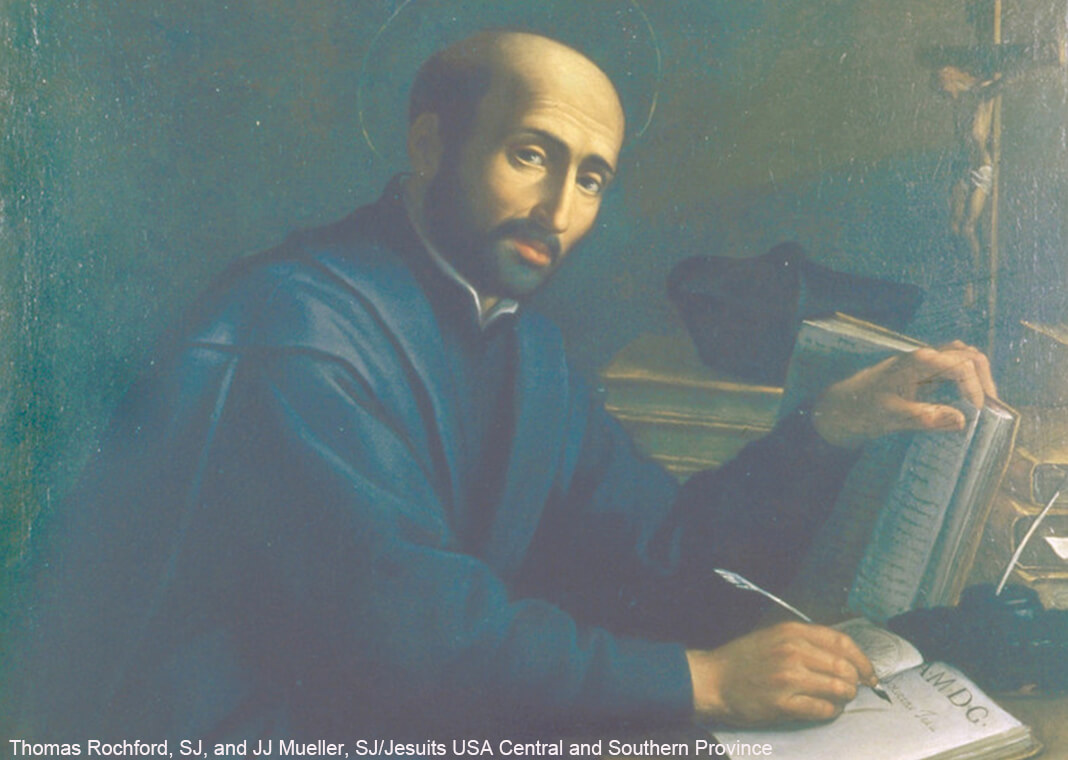
What defines a good leader?
I wrestle with this question all the time. When I was in high school, I believed a good leader was charismatic, popular, intelligent, and could command a room easily. I believed a good leader, by nature of some unseen and incredibly special quality, could speak about anything, and people listened.
Because of this myopic view of what a good leader was, I didn’t believe I could ever be one.
After all, I never considered myself to be popular. In high school, I was the quiet kid, unless I was around my close friends. I also could easily point to a bunch of people around me that I believed far exceeded my intelligence, at least in the standard classroom setting. Due to my introverted nature, I tended to disappear in rooms more than command them.
I think remnants of this view of a good leader stayed with me until I met St. Ignatius Loyola and journeyed with him from his cannonball moment to his time as Superior General. As I learned his story, it turned upside down my understanding of what made a good leader.
Ignatius was the kind of leader who:
- admitted and learned from his failures. Every failure gave Ignatius a new understanding of who he was and who God was calling him to be. When he was injured by a cannonball, he explored new ways of being noble and heroic. When he was denied entry into Jerusalem, he learned that the types of missionaries the Church needed were different from the ones he had originally envisioned. Instead of giving up and hiding his failures, he used his failures and the understanding he gleaned from them to help people expand the scope of possibility.
- did the unpleasant work, because it was a part of a bigger picture. When Ignatius was appointed Superior General, his role became one of staying put in Rome and writing. He had to put down on paper all he knew about prayer and the Exercises, as well as the rules of the Society he was forming. He had to write letters to check in with his men and see how they were doing and what help he could give them on the road. It was cruddy work for a man who loved adventure and travel and experiencing the world, but it was vital to establishing an order and a spirituality that would have a massive and long-lasting impact.
- paused. On the road to Rome, Ignatius stopped at La Storta with his companions to pray. He was uncertain if the goal he had in mind at the time was still the goal God was moving him towards. Instead of just pushing on, he stopped. He spent time listening, and he trusted God’s response.
Ignatius showed me that leadership isn’t at its heart about the outward-facing qualities. Instead, real leadership is about self-awareness, authenticity, and vulnerability. It’s about reflection. It’s about pause—pauses to listen to God, to others, and to our hearts. But most of all, it’s about being true to who we are. The way I lead will be different than the way others do, but perhaps we all have something to offer the world if we are willing to show up and try.

Thank you, Gretchen a truly blessed insight.
Wonderful reflection. Thanks Gretchen. Standing behind, he could deploy his troops in all directions. Ignatius was a leader par excellence. Few can match the qualities of his head and heart.
Interesting reflection… recently while in Spain we visited Manresa and Montserrat and was truly influenced even more so to try to follow Ignatius spirituality. I have come home to a renewed resolve to see Hod in more ways and to reread How Big is Your God. I reread it once every year and date new passages that really speak to me.